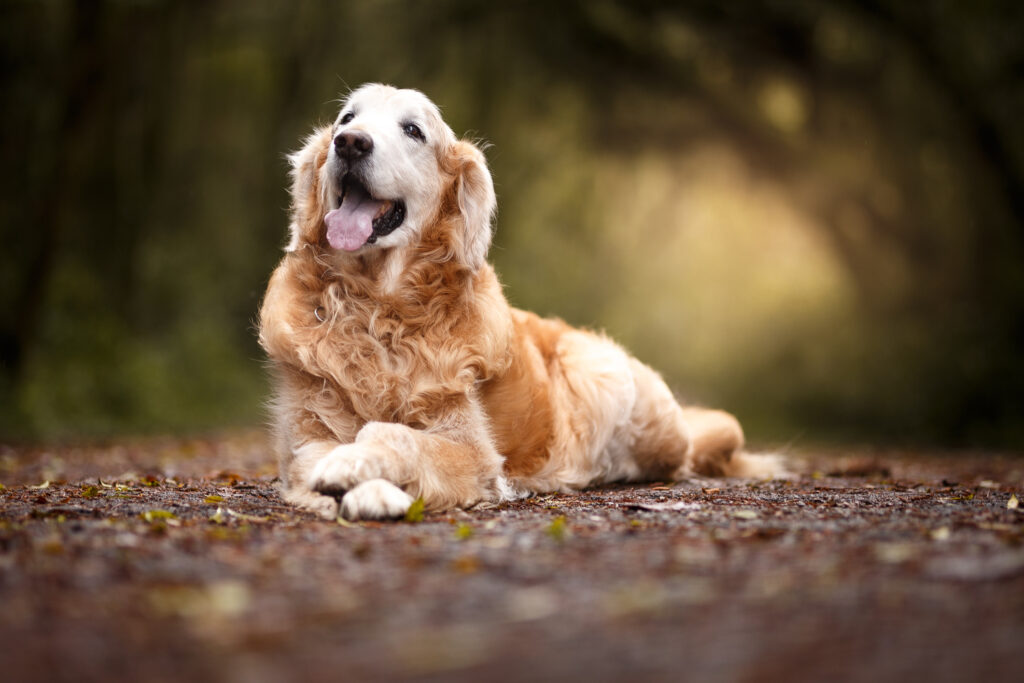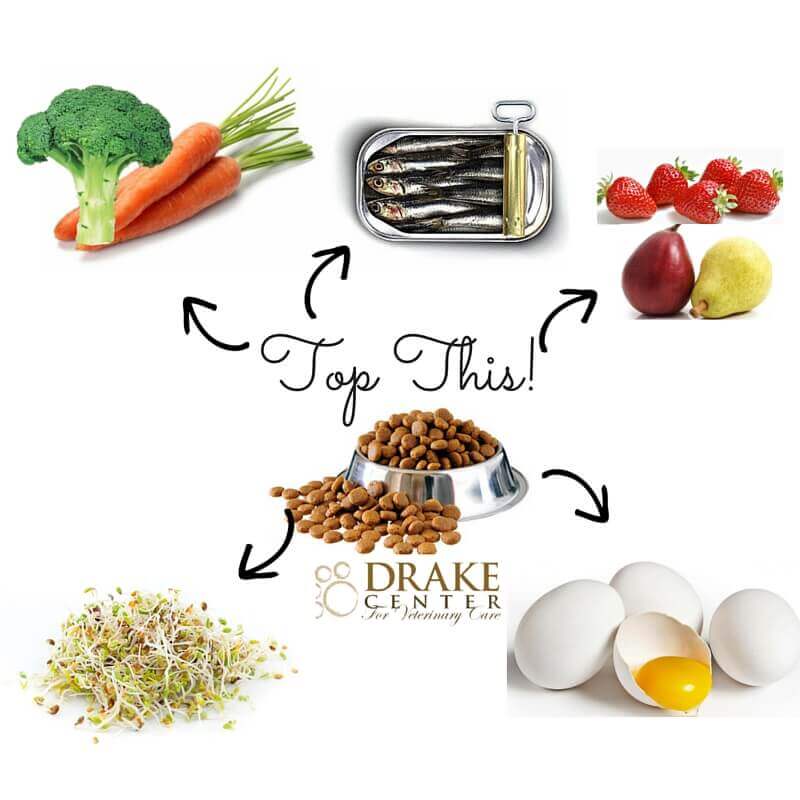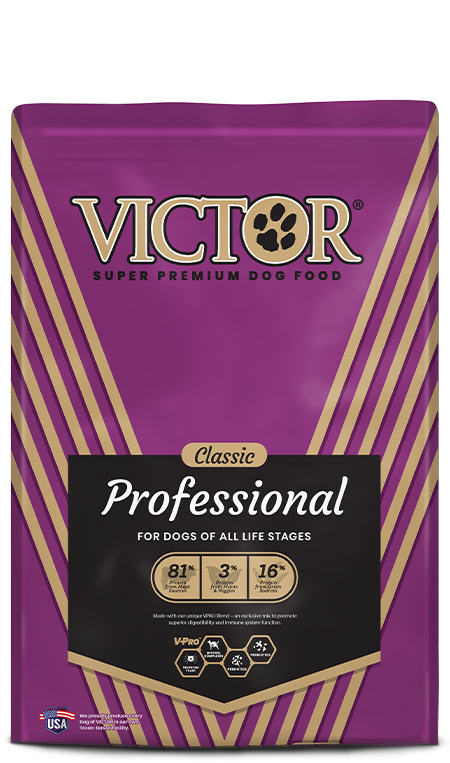Are you curious about how your tiny four-legged friend grows year by year? Understanding the size and development of your small dog can be as fascinating as it is essential for their well-being.
Whether you’re a new pet parent or have been living with your furry companion for years, knowing the milestones of their growth can help you care for them better. Imagine being able to predict the playful leaps of your little pup or knowing when they might need that extra vet visit.
Dive into this guide to uncover the secrets of how small dogs transform through the years. This isn’t just about numbers and measurements; it’s about getting to know your beloved pet in a way that enhances their life — and yours. Stay with us as we explore the intriguing journey of your small dog’s growth, year by year.

Dog Growth Stages
Small dogs experience notable growth in their early years. By the age of one, many small breeds reach full size, typically around 10 to 15 inches tall. Their weight often ranges from 10 to 20 pounds. Growth slows significantly after this period, with minimal changes in height or weight.
Understanding the different growth stages of a small dog is crucial for providing the right care and ensuring your furry friend’s healthy development. Small dogs, like their larger counterparts, go through distinct phases that affect their behavior, nutrition, and exercise needs. Knowing these stages can help you anticipate changes and adjust your approach to training and care. Let’s dive into the specific stages of growth for small dogs and what you can expect year by year.
Puppyhood
Puppyhood is an exciting and crucial time in a small dog’s life. During the first year, your puppy will experience rapid growth and development. It’s a time filled with curiosity and learning, where socialization is key. In the first few weeks, your puppy is heavily reliant on its mother for nourishment and warmth. As they grow, you’ll notice their playful nature emerging, and it’s the perfect time to introduce basic training and house rules. By six months, many small breeds will have reached most of their adult size, although their behavior might still be quite puppy-like.
Adolescence
Adolescence in small dogs typically starts around the one-year mark and can last until they are about two years old. This stage is akin to the teenage years in humans—expect some rebellion and testing of boundaries. During this time, small dogs are full of energy and might challenge your authority. Consistent training is essential to establish good behavior patterns. It’s also a period where hormonal changes can occur, so spaying or neutering might be considered. Adolescence is a great time to engage your dog in more advanced training or agility exercises. Their bodies are capable, and their minds are eager to learn. Keep them mentally stimulated to prevent boredom and destructive behavior.
Adulthood
Once your small dog reaches adulthood, usually around two years of age, they settle into their mature size and temperament. This stage is characterized by a stable routine and a balanced lifestyle. Adult dogs are generally calmer than puppies and adolescents, making them excellent companions for those seeking a more relaxed pet experience. However, they still require regular exercise to maintain their health and prevent weight gain. Understanding the nutritional needs of an adult small dog is vital. You might need to adjust their diet to suit their lower energy levels compared to their younger years. Regular vet check-ups will help you keep their health in check and address any age-related changes. Are you noticing the small yet significant changes in your dog’s behavior as they grow? Recognizing these growth stages helps you be the best pet parent you can be. Each stage brings its own joys and challenges, but with knowledge and patience, you’ll navigate them with ease.
Factors Affecting Growth
Understanding the factors affecting the growth of small dogs can be quite enlightening. Many pet owners often wonder why their furry friends don’t grow as expected. The truth is, several elements play a crucial role in how big a small dog can get year after year. Let’s dive into these factors to help you better understand your pet’s growth journey.
Breed Variations
The size of a small dog largely depends on its breed. Breeds like Chihuahuas and Pomeranians are naturally tiny, while others like French Bulldogs might be on the larger side of the small dog category. Consider this: a Chihuahua might weigh only a few pounds, whereas a French Bulldog can weigh up to 28 pounds. Each breed grows at its own pace and reaches different sizes, so it’s essential to know your dog’s breed characteristics. Have you ever noticed how a friend’s small dog is much bigger than yours? That could be due to these breed variations.
Nutrition
Nutrition plays a pivotal role in a dog’s growth. Think of food as the fuel that powers your dog’s development. A balanced diet rich in proteins, vitamins, and minerals can ensure your dog grows healthily. On the other hand, poor nutrition can stunt growth and lead to health issues. Have you ever had a pet that seemed sluggish or smaller than expected? It might be time to reassess their diet. Consider consulting your vet for a tailored nutrition plan that supports your dog’s growth.
Genetics
Genetics is another significant factor influencing a dog’s size. Just like humans, dogs inherit traits from their parents. If your dog comes from a line of smaller dogs, it’s likely to remain on the petite side. On the other hand, dogs with larger ancestors might surprise you with their growth. Remember the excitement of watching your puppy grow? Genetics can make growth an unpredictable journey. Curious about how big your dog will get? Investigating their lineage might provide some answers.
Have you considered all these factors when analyzing your dog’s growth? Each element plays a role in how your beloved pet develops year after year. Understanding these factors can help you nurture your dog in the best way possible, ensuring a healthy and happy life.
Yearly Growth Milestones
Understanding a small dog’s growth milestones helps owners meet their needs. Each year brings unique changes in size, behavior, and health. This guide outlines what to expect as your small dog grows. Let’s explore these yearly growth milestones.
First Year Developments
The first year is full of rapid changes. Puppies grow quickly, reaching most of their adult size. In the first few months, they double in size. By six months, small dogs are often half their adult weight. Their bones develop and harden. Socialization and training are crucial during this time. They learn basic commands and start understanding their environment.
By the end of the first year, most small dogs look like adults. They develop their full coat and distinct features. Yet, they retain their playful puppy nature.
Second Year Changes
The second year brings stability in physical growth. Small dogs reach their full size and weight. They now focus on mental and emotional development. Behavioral changes become noticeable. They show more independence and confidence.
Training is still important in the second year. Reinforcing commands and social skills helps behavior. This is also a time to monitor health and diet. Regular vet visits ensure they stay healthy and active.
Third Year Maturity
By the third year, small dogs mature fully. They settle into their adult personalities. Energy levels may decrease, leading to a calmer demeanor. They develop strong bonds with their family members. Their behavior becomes more predictable and stable.
While physical growth stops, mental growth continues. Engaging activities and games keep them sharp. Regular exercise remains important. A well-balanced diet supports their overall health and well-being.
Comparing Small Dog Breeds
Small dog breeds vary in size as they age. Puppies may weigh just a few pounds. Adults typically reach 10 to 25 pounds. Growth patterns differ by breed, influencing their size year by year. Understanding these changes helps in comparing small dog breeds effectively.
Comparing Small Dog Breeds When it comes to small dog breeds, each has its own unique growth pattern and size evolution. Whether you’re a proud owner or considering adopting, understanding how these adorable companions grow can help you make informed decisions. Let’s dive into the growth patterns of some popular small dog breeds.
Chihuahua Growth Patterns
Chihuahuas, one of the tiniest breeds, pack a lot of personality into a small frame. You might notice that these little pups grow rapidly in their first six months. Your Chihuahua’s growth typically slows down after reaching the one-year mark. By this age, most Chihuahuas reach their full adult size, weighing between 2 to 6 pounds. Are you surprised by how quickly they mature?
Yorkshire Terrier Development
Yorkshire Terriers, often known as Yorkies, are known for their silky coats and spirited energy. Yorkies experience the most growth during their first six months. If you own a Yorkie, you might see them reach close to their adult size by their first birthday. Typically, they weigh around 4 to 7 pounds at full maturity. Have you noticed how their personality grows as they do?
Dachshund Size Evolution
Dachshunds, with their distinctive elongated bodies, follow a different growth trajectory. These loyal companions grow steadily but slowly. By their first year, Dachshunds usually reach their adult size, which can vary depending on whether they are standard or miniature. Miniature Dachshunds weigh around 11 pounds, while standard ones can weigh up to 32 pounds. Have you ever seen how their size affects their playful nature? Understanding these growth patterns can help you cater to your small dog’s needs effectively. Keeping track of their growth also ensures they are healthy and happy. Have you ever been surprised by how quickly or slowly your small dog grew? Share your experiences in the comments below!
Monitoring Health And Growth
Monitoring the health and growth of a small dog is essential. It ensures they develop properly and remain healthy through the years. With small dogs, growth patterns can vary widely. Regular checks help you spot any issues early. This section outlines ways to monitor your small dog’s development effectively.
Weight Tracking
Track your dog’s weight consistently. Use a reliable scale. Weigh them once a month. Note any sudden changes. Large weight swings can indicate health issues. Keep a record of each weigh-in. This helps identify trends over time. Small dogs should maintain a steady weight. Consult a vet if you notice fluctuations.
Height Measurements
Measure your dog’s height regularly. Use a ruler or measuring tape. Stand your dog on a flat surface. Measure from the floor to their shoulders. Record the height in a journal. This helps track their growth. Comparing measurements can show growth spurts. Consistent height helps assess their development.
Veterinary Check-ups
Schedule regular veterinary check-ups. They are crucial for your dog’s health. Vets can spot issues not visible to owners. Annual check-ups are recommended. Puppies may need more frequent visits. Discuss any concerns with your vet. They provide expert advice on care and growth. Vets also offer vaccination schedules. This keeps your dog protected from diseases.
Common Growth Issues
Small dogs experience growth differently year by year. Initially, they grow rapidly, reaching near full size by their first birthday. Afterward, growth slows significantly, with minor changes in size over the subsequent years. Understanding their growth pattern helps in predicting health issues.
Understanding the common growth issues in small dogs is crucial for ensuring they lead healthy, happy lives. These tiny companions may face unique challenges as they grow, often requiring extra attention and care. Let’s delve into some of the most frequent growth concerns that could affect your small dog year by year.
Stunted Growth
Stunted growth can be a worrying sign for small dog owners. It usually means your pup isn’t reaching its expected size due to nutritional deficiencies or underlying health problems. Imagine finding out your beloved Chihuahua isn’t growing as expected because of a simple lack of essential nutrients. Regular vet check-ups and a balanced diet can help prevent this issue. Have you noticed any signs of stunted growth in your furry friend? If so, seeking professional advice early can make all the difference.
Obesity Concerns
Obesity is a growing problem among small dogs, often due to overfeeding and lack of exercise. Just because they’re small doesn’t mean they don’t need regular physical activity. It can be tempting to spoil them with treats, but this can lead to serious health issues like diabetes or heart disease. I once had a Pomeranian who loved snacks a bit too much. We had to adjust his diet and introduce more playtime to help him shed the extra pounds. Are you mindful of your dog’s weight?
Joint Problems
Joint problems can start early in small dogs, especially breeds prone to such issues like Dachshunds or Pugs. These conditions can lead to discomfort and mobility issues as your pet ages. Regular exercise and weight management are key to maintaining healthy joints. Consider providing joint supplements if your vet recommends them. How do you ensure your small dog stays active and healthy? Addressing these common growth issues promptly can lead to a healthier and happier life for your furry companion. Keep an eye out for any signs and consult your vet regularly to stay on top of your dog’s health.
Optimizing Growth Conditions
Understanding how to optimize growth conditions for small dogs can make a big difference in their health. These conditions are essential for ensuring your furry friend grows well each year. By focusing on diet, exercise, and environment, you can help your dog lead a healthy and happy life.
Each aspect of growth plays a crucial role. From the food they eat to the activities they engage in, every detail matters. Let’s dive into the specifics to help your small dog thrive.
Dietary Recommendations
Proper nutrition is key to a small dog’s growth. Choose high-quality dog food with balanced nutrients. Proteins, fats, and carbohydrates are important for energy and development. Ensure your dog gets enough vitamins and minerals. Calcium and phosphorus support bone health. Feed your dog according to their weight and age. Puppies need more frequent meals than adult dogs. Avoid overfeeding to prevent obesity. Fresh water should always be available.
Exercise And Activity
Regular exercise keeps a small dog fit and healthy. Short walks and playtime are ideal. They help burn off excess energy. Exercise supports muscle growth and maintains a healthy weight. Activities should be suitable for your dog’s size and breed. Avoid overly strenuous activities. Monitor your dog’s energy levels during exercise. Provide mental stimulation with toys and games. This keeps their minds sharp and active.
Environmental Factors
Environment affects a small dog’s growth. A safe and comfortable space is crucial. Ensure your home is pet-friendly. Remove hazards and secure dangerous items. Temperature regulation is important. Extreme heat or cold can harm your dog. Provide a warm bed and shelter. Regular vet visits help monitor their health. Vaccinations and check-ups are necessary. A clean environment prevents infections and diseases.

Long-term Growth Insights
Understanding how a small dog grows year by year is essential. It helps in providing the best care throughout their lives. Small dogs grow differently compared to larger breeds. They reach maturity faster and live longer. This section delves into the long-term growth insights of small dogs. It highlights the importance of knowing their life stages and needs.
Lifespan Expectations
Small dogs often live longer than larger breeds. Their lifespan ranges from 10 to 15 years. Some may even reach up to 18 years. Knowing this helps in planning for their long-term care. Regular veterinary check-ups are crucial. They help in monitoring health and preventing diseases. Proper diet and exercise also play a big role. It ensures they stay healthy and active through the years.
Senior Dog Care
Aging small dogs require special attention. Their needs change as they grow older. Joint health becomes a priority. Supplements can help maintain mobility. Regular vet visits become even more important. It helps in catching potential health issues early. Adjusting their diet is necessary. Senior dogs need fewer calories and more nutrients.
Size Maintenance
Maintaining a small dog’s size is important for their health. Overfeeding can lead to obesity, a common issue. Portion control is key to preventing weight gain. Regular exercise helps in keeping them fit. Activities should suit their energy levels and age. Monitoring their weight regularly is essential. It ensures they remain within a healthy weight range.

Frequently Asked Questions
What Defines A Small Dog Size?
A small dog typically weighs under 22 pounds and stands less than 16 inches tall. Size can vary by breed, age, and health. Understanding these factors helps in determining whether your dog fits the small category.
How Does A Small Dog’s Size Change Yearly?
A small dog’s growth slows after the first year. Most reach adult size by 12 months. Afterward, changes are minimal and mainly due to diet, health, or aging.
Are Small Dogs Healthier Than Big Dogs?
Small dogs often live longer than large breeds. They generally face fewer health issues, but regular vet check-ups are crucial. Each breed has specific health concerns to be aware of.
What Factors Influence A Small Dog’s Size?
Genetics, diet, and exercise play key roles in a dog’s size. Proper nutrition and exercise can ensure healthy growth and weight maintenance. Breeders can provide insight into expected adult size.
Conclusion
Understanding your small dog’s growth by age is important. Each year brings changes. Their size, energy, and needs evolve with time. Knowing these shifts aids better care. It helps in feeding, exercise, and health checks. This knowledge fosters a happy pet life.
Remember, small dogs may grow less but need much love. Pay attention to their yearly changes. Stay informed and enjoy each stage. Cherish the journey with your furry friend. They’re small in size, but big in heart.



:max_bytes(150000):strip_icc()/Homemade-Dog-Food-with-Meat-and-Vegetables-2000-4cc9fe09054d4c6e8eade112facefe53.jpg)






